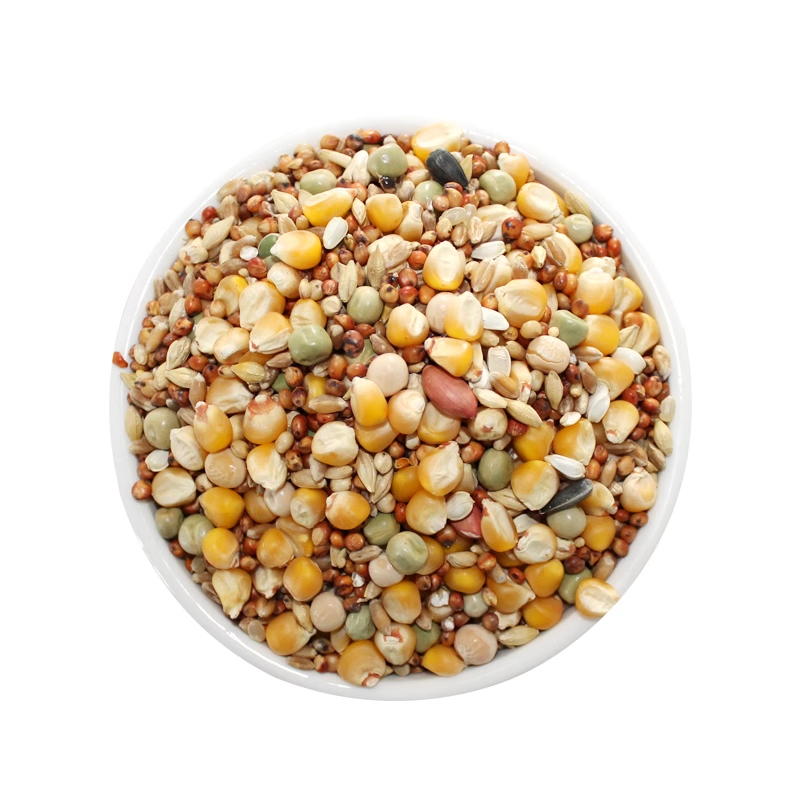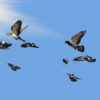
High-Protein Pigeon Feed Mixes for Peak Performance
High-Protein Pigeon Feed Mixes for Peak Performance
When it comes to building elite racing pigeons, one nutrient consistently takes center stage: protein. From wing muscle development to post-race recovery, protein is the cornerstone of peak avian athleticism. Yet many fanciers unknowingly fall short, relying too heavily on carbohydrates without the balanced protein intake their birds need for sustained success.
If your pigeons show signs of sluggishness, delayed recovery after tosses, or underwhelming race results, inadequate protein levels in their diet might be the hidden culprit.
In this guide, we’ll cover:
-
Why protein is vital in racing pigeons
-
The signs of protein deficiency
-
Best high-protein grains and natural sources
-
When and how to adjust protein in the training cycle
-
The benefits of protein powders and amino acid supplements
Let’s get your pigeons fueled for strength, speed, and endurance — one scoop at a time.
Why Protein is Crucial for Racing Pigeons
Just like in human athletes, protein in pigeons supports a range of vital functions:
-
Muscle development and maintenance
-
Tissue repair after flights and training
-
Enzyme and hormone production
-
Feather quality and molt support
-
Immune function and disease resistance
While grains provide energy in the form of carbohydrates and fats, only protein delivers the amino acids needed to build and repair muscle fibers, which directly affects flight strength and stamina.
Without enough protein, even well-trained birds may underperform or become injury-prone.
Signs of Protein Deficiency in Racing Pigeons
Your pigeons may not tell you they need more protein — but their bodies will. Watch for these warning signs:
| Symptom | What It Means |
|---|---|
| Weak or flabby breast muscles | Poor muscle development |
| Slow recovery post-race | Insufficient tissue repair |
| Increased susceptibility to illness | Weakened immunity |
| Delayed molt or dull feathers | Protein-dependent keratin production is lacking |
| Low flight endurance | Reduced muscle efficiency and stamina |
Best High-Protein Grains for Racing Pigeons
Grains form the core of any pigeon feed mix. Here are the top choices for protein-rich grains that build strong birds.
1. Peas (Yellow, Green, Maple)
Peas are a staple in racing pigeon diets for good reason — they contain 22–24% protein and offer a well-balanced amino acid profile. They support:
-
Muscle development during training
-
Feather regrowth during molt
-
Recovery post-flight
Feeding Tip: Use a mix of pea types to provide variety and maximize nutritional coverage.
2. Lentils
Lentils are smaller and easier to digest than peas, while still offering up to 26% protein. Ideal for younger birds or during early training periods.
3. Vetch
Often overlooked, vetch packs a strong protein punch (around 25%) but can be hard to digest in excess. Use in small quantities to diversify your mix.
4. Soybean Meal (Processed)
Though not a traditional seed, roasted or processed soybean meal offers an incredible 40–50% protein. It’s ideal for adding to pellets or mashes.
5. Rapeseed and Linseed
These grains offer both protein and beneficial fatty acids. They help with feather condition and post-race energy replenishment.
Natural Protein Supplements for Pigeons
Sometimes grains alone aren’t enough — especially during intensive training, racing, or post-infection recovery. Here’s where protein-rich natural supplements come into play.
1. Brewer’s Yeast
-
Rich in B-vitamins and protein
-
Helps build healthy feathers and nerves
-
Often used mixed with grit or over grains
2. Spirulina Powder
A blue-green algae with up to 60% protein, spirulina is a superfood for pigeons. It boosts immunity, stamina, and muscle repair.
3. Milk Protein Powder (Casein or Whey)
Highly digestible and amino-acid rich. Add a small amount to soft food or over grains, especially after long races.
4. Oregano-Based Protein Blends
Some herbal mixes combine oregano with protein sources for added gut health and performance support.
The Role of Amino Acids in Pigeon Nutrition
Protein is made up of amino acids. Some are produced naturally in a pigeon’s body, while others — called essential amino acids — must be obtained from food.
Key amino acids for racing pigeons include:
-
Methionine – Important for feather growth and liver function
-
Lysine – Crucial for muscle protein synthesis
-
Threonine – Supports digestion and immunity
-
Arginine – Involved in stamina and blood flow
High-performance supplements often include these amino acids in concentrated form for peak race preparation and recovery.
When to Increase Protein Intake
Young Bird Training
Young pigeons need extra protein to build muscle, bones, and feather quality. Feed mixes should be 50–55% protein-rich grains.
Pre-Race Conditioning
As birds begin road training (20–40 km tosses), protein supports muscle endurance and power.
Post Race Recovery
After each race, birds need easily digestible protein to repair muscle damage and restore strength. Use soaked peas, soft egg food, or protein-enriched pellets.
Molting Season
Feather regrowth requires huge protein reserves. Boost protein to ensure a healthy molt and reduce stress.
Sample High-Protein Feed Mix (Per 1kg)
| Ingredient | Amount (grams) |
|---|---|
| Green Peas | 250g |
| Lentils | 200g |
| Wheat | 150g |
| Red Milo | 100g |
| Safflower | 100g |
| Linseed | 50g |
| Brewer’s Yeast (added weekly) | 10g |
| Protein Powder (optional) | 5–10g |
This mix provides a strong balance of protein, energy, and digestibility.
Best Practices for Feeding High-Protein Mixes
-
Always use clean, mold-free seeds Mycotoxins can neutralize the benefits of protein.
-
Soak or sprout grains for better digestibility, especially peas and lentils.
-
Monitor droppings Loose or greenish droppings may indicate protein overload or poor digestion.
-
Rotate feed ingredients to prevent selective eating and nutrient gaps.
-
Support with grit and minerals Protein digestion requires a well-functioning crop and gizzard.
Myths About Protein in Pigeon Feeding
“More protein is always better.”
Too much protein, especially when birds are at rest, can burden the kidneys and lead to dehydration.
“Carbs fuel performance protein is just for molt.”
While carbs provide energy, protein is essential year-round for structural strength, endurance, and immunity.
“Seeds are enough no supplements needed.”
Seed-based protein alone may lack certain essential amino acids. Supplements can fill these gaps efficiently.
Final Thoughts: Build Champions with Protein Power
Your pigeons’ ability to train harder, recover faster, and fly farther depends on how well you meet their protein needs.
With the right mix of high-protein grains, natural supplements, and targeted feeding strategies, you’ll set the stage for peak performance throughout the season.
Whether you’re prepping for a club race or a national competition, don’t let protein be the missing piece in your nutritional program. Feed smart. Feed strong. Feed for results.



